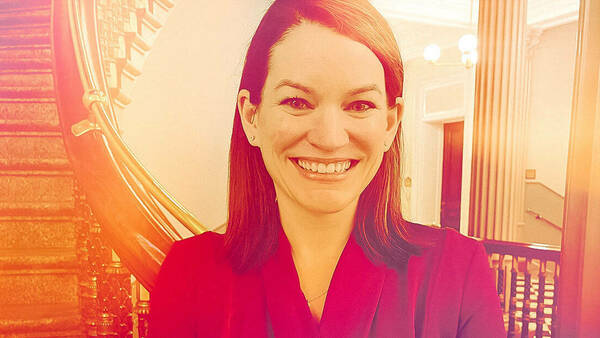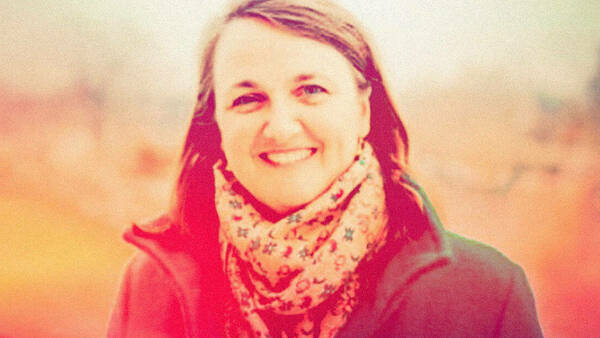Jemar Tisby ’02 loves the Christian Church, but hates racism.
“And it’s really hard to love the Church, “he says, “when it’s steeped in racism.”
Tisby wrote his recently published book, The Color of Compromise: The Truth About the American Church’s Complicity in Racism, for that one simple reason.
“The Church should feel like home to anyone and everyone, no matter their race or ethnicity,” he says. “And until that is true, then we’ve got work to do, because Jesus came to tear down the dividing wall of hostility—to establish reconciliation between God and humanity, but also between one human being and another.”
And with this work left to do, Tisby is rolling up his sleeves, and dedicating his life to building a more racially just and inclusive Church, a vocation that takes a variety of forms.
He serves as president of The Witness, a black Christian collective, which engages with issues of religion, race, justice, and culture from a biblical perspective through blog posts, podcasts, and events that seek to foster community. In this role, Tisby co-hosts the “Pass the Mic” podcast, which addresses a variety of issues.
Tisby, who majored in American Studies and minored in theology at Notre Dame and has a masters in divinity from the Reformed Theological Seminary, is also pursuing his Ph.D. in history at the University of Mississippi. He is working on a dissertation that explores black evangelicalism after World War II through a biography of black evangelist Tom Skinner, and hopes to continue writing books that discuss race and racism, especially as they relate to American Christianity.
Tisby says his own personal journey informs his work, and inspires him to fight for a more just Church. This journey began in Waukegan, about 30 miles north of Chicago, where he grew up. He became a Christian in high school, and focused his college search in the Midwest, leading him to Notre Dame.
“Even though I was and am a Protestant Christian, I really appreciated the fact that, at Notre Dame, you could talk about God and you didn’t have to be in some special group,” he says. “It was just part of the culture of the school.”
But his transition to Notre Dame wasn’t necessarily easy. For the first time in his life, Tisby was at a majority white school, “so that racial adjustment was big,” he recalls. Plus, he entered Notre Dame as a business major, which wasn’t the right fit. Things started to turn around in the spring of Tisby’s sophomore year, when he studied abroad in Jerusalem, and traveled throughout the Holy Land and Middle East. He switched his major to American Studies and says his last two years were transformative and left him with a desire to serve.
After graduation, he remained at Notre Dame for a yearlong internship in Campus Ministry before serving with Teach for America.
Tisby was placed at KIPP Delta, a charter school in Phillips County, the fourth-poorest county in the country, which sits on the Arkansas side of the Mississippi River Delta. He taught sixth grade science and social studies, and after fulfilling his two-year commitment to the program, continued for another two years at the school. He took a one-year break to start his seminary education, but returned to serve three more years as the school’s principal, an experience that instilled in him the importance of school leadership in education.
“It also led me down this path of asking critical questions of what my faith has to do with justice,” Tisby says. “This is the period in my life when I had to think about what difference does Christianity make in the midst of crushing poverty, with students coming in who are functionally homeless.”
These questions led Tisby back to seminary in Jackson, Mississippi, an experience he describes as “a racial reawakening” that helped him discover what has become his life’s work.
During his time in Jackson, he helped found two programs to foster racial and ethnic diversity and to equip Christians for cross-cultural ministry: the African American Leadership Initiative and the Reformed African American Network, which would be renamed The Witness in 2017.
“Both of those experiences were extremely positive in terms of the people they attracted, but also very challenging in terms of the opposition they attracted, too,” Tisby says. “So it was through the work of these two organizations that I started to learn the depth of racism in some parts of the American Church. I got called all kinds of names. Basically, many of these politically and theologically conservative Christians viewed any explicit talk about race or racism as beyond the bounds of orthodoxy.”
Experiences like these—set against the backdrop of national conversations on race in the context of the Black Lives Matter movement and events like the 2015 mass shooting at the Emanuel African Methodist Episcopal Church in Charleston, South Carolina, and the 2017 Unite the Right Rally in Charlottesville, Virginia—ultimately led to his book.
“Throughout the history of the Church in the United States, all too often when opportunities to courageously confront the racist status quo occurred, Christian individuals and congregations chose complicity and compromise over confrontation,” Tisby says of his book, which traces the history of the Christian Church in the U.S. from the colonial era to the present. “And it shows in each major period of U.S. history how the Church could have gone another way, but instead, through various decisions, propped up and even helped construct a race-based hierarchy in the nation.”
This historical overview spans 10 chapters and nearly 200 pages, all of which lead up to Tisby’s final chapter, entitled “The Fierce Urgency of Now,” a line from Martin Luther King Jr.’s iconic “I have a Dream” speech. It ends with series of steps aimed at addressing the systemic and institutional aspects of racism, Tisby says, including instituting reparations for slavery, publicly denouncing racism, starting a new seminary with racial equality at its core, and making June 19—known as Juneteenth, the date in 1865 when slaves in Texas finally learned about their emancipation—a national holiday.
Tisby says these steps contribute to his broader hope that Christians will take aggressive anti-racist action in order to reduce racism in the Church. And that goal goes well beyond the bounds of his book. His studies, and his work through The Witness and various other writings and speaking engagements, continue to grow, and he welcomes others to join his cause.
“There’s a rich tradition of Catholic Social Teaching that has already spoken to many of the injustices that continue to afflict our society today,” he says. “So I think Catholic believers are well positioned to help lead in the struggle for racial justice in the 21st century, and I’m grateful for a Catholic education that didn’t see the Gospel and social justice as two separate things, but as integrally related.”



